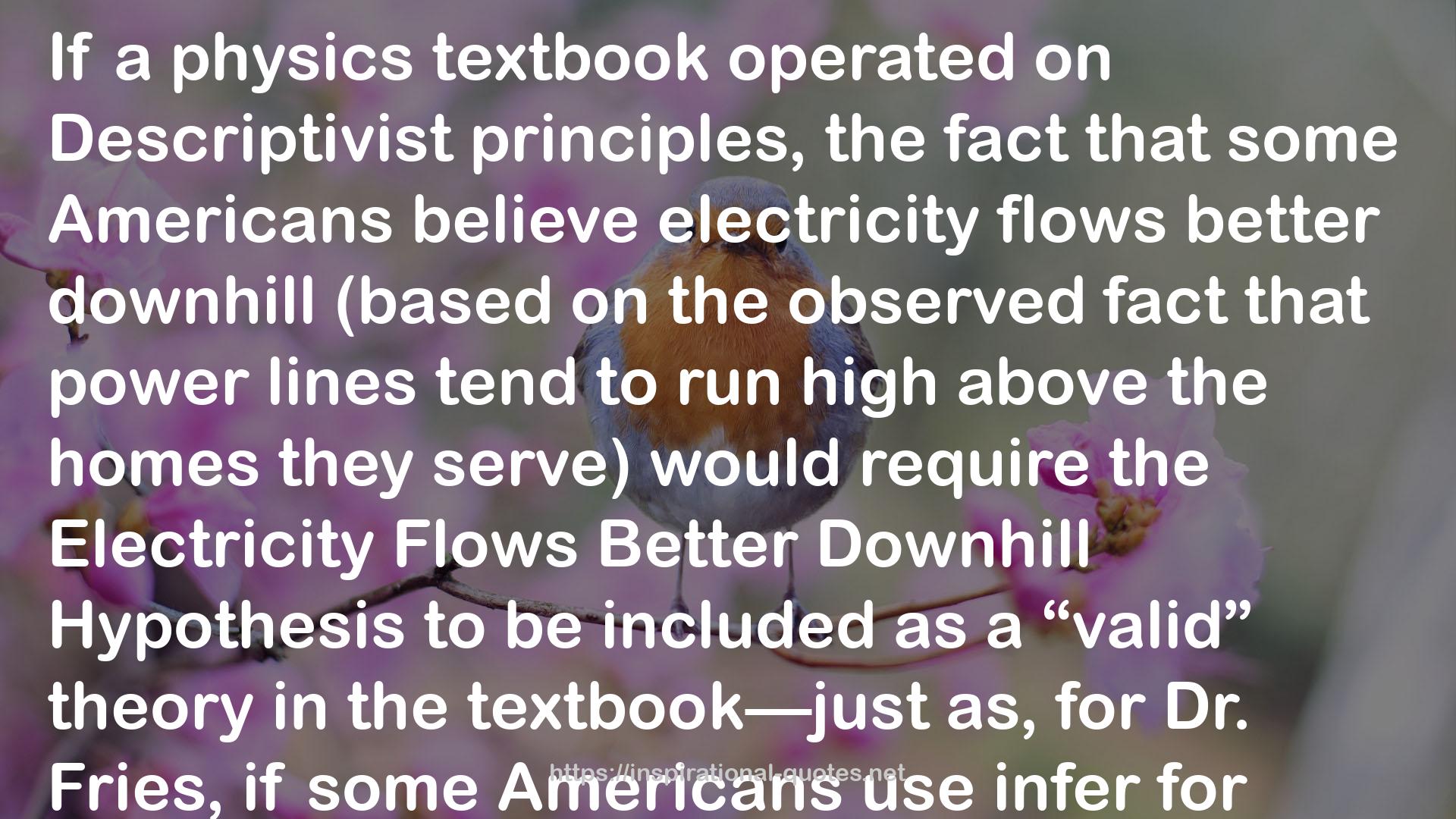" If a physics textbook operated on Descriptivist principles, the fact that some Americans believe electricity flows better downhill (based on the observed fact that power lines tend to run high above the homes they serve) would require the Electricity Flows Better Downhill Hypothesis to be included as a “valid” theory in the textbook—just as, for Dr. Fries, if some Americans use infer for imply or aspect for perspective, these usages become ipso facto “valid” parts of the language. The truth is that structural linguists like Gove and Fries are not scientists at all; they’re pollsters who misconstrue the importance of the “facts” they are recording. It isn’t scientific phenomena they’re observing and tabulating, but rather a set of human behaviors, and a lot of human behaviors are—to be blunt—moronic. Try, for instance, to imagine an “authoritative” ethics textbook whose principles were based on what most people actually do. Grammar and usage conventions are, as it happens, a lot more like ethical principles than like scientific theories. "
― David Foster Wallace , Consider the Lobster and Other Essays
